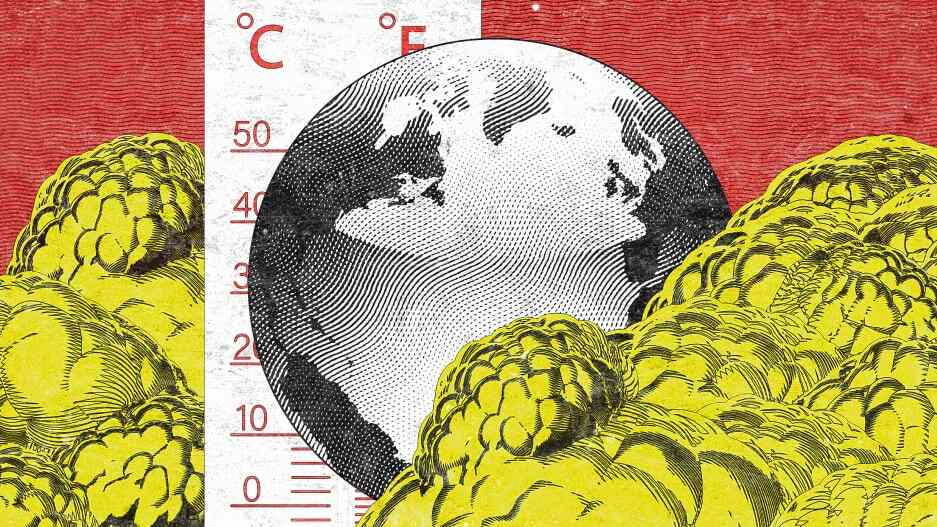- | 9:00 am
This July is the hottest month in roughly 120,000 years
As global temperatures surge, the disastrous impacts are obvious.

July isn’t over, but it’s already clear that it will be the hottest month for the planet since record-keeping began—and likely the hottest in around 120,000 years. “It’s certain at this point, already, that we are in absolutely new record territory,” Karsten Haustein, a climate scientist at Leipzig University, said at a press briefing on July 26.
The month was between 1.3 and 1.7 degrees Celsius hotter than the average July before the Industrial Revolution, Haustein says, the point when humans started rapidly filling the air with greenhouse gases. The world is now hotter than it has been since the Eemian period, when hippos lived in what is now England.
As the average global temperature surges, the impacts are obvious. Fires in Canada this summer have burned nearly 30 million acres, an area around four times the size of Belgium. Heat waves this month in the U.S. and Europe would have been “virtually impossible” without climate change, according to a new analysis. Phoenix has spent weeks over 110 degrees Fahrenheit; at least 18 people have died because of the heat this summer in the area, and another 69 deaths are under investigation. (Since the early 2000s, globally, the number of heat-related deaths have jumped by about 70%.)
In South Florida, the ocean temperature rose above 100 degrees this month, a possible world record; coral reefs in the area are bleaching and dying. A landslide caused by record rain in Pakistan trapped 15 teenagers at a cricket game, killing eight of them. In South Korea, 13 people died when severe floods trapped their cars in a tunnel. In India, where floods destroyed crops, the price of tomatoes has tripled and the government has banned some rice exports; in Thailand, the government has restricted rice planting because of severe drought.
El Nino, a weather pattern with hotter ocean temperatures, is pushing temperatures even higher than they otherwise would have been, but the underlying cause is human-induced climate change. “As long as we are continuing to burn fossil fuels, these records will keep continue to be broken,” says climate scientist Friederike Otto. That will mean more people forced from their homes by flooding and fires, more food shortages because of climate change’s impact on farming, and more deaths.
Global climate talks later this year will be led by Sultan Ahmed Al Jaber—an oil company executive who recently acknowledged that phasing out fossil fuels is “inevitable.” But it’s necessary to move faster, Catherine Abreu, founder of the climate nonprofit Destination Zero, said at the briefing. “This transition away from fossil fuels is not just inevitable, it is urgent,” she says. “It needs to be planned. It requires cooperation. It requires a provision of finance at a scale that is that is currently not being provided.”







































